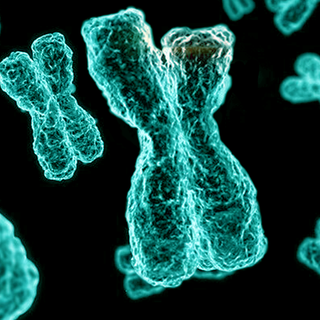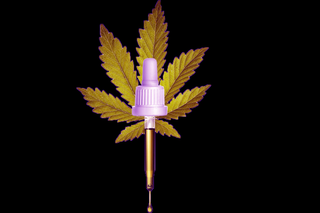
Untrending: CBD Oil Is Not a Cure‑All
Most of the health benefits attributed to CBD oil online are wildly untrue.

In Untrending, we side-eye the latest fads so we know what we’re getting ourselves into — and what (if anything) we’re getting out of them.
Let’s start with the most obvious: CBD oil does not cure cancer. This claim is all over the internet, but it’s a grotesque, if understandable (hope!), twisting the many hundreds of studies that have looked into this topic — almost all of which involved laboratory tests on human cells or animals.
While these kinds of tests are the best clues we have of how a substance might affect an actual, living, breathing human body, they’re still very poor predictors. This is why large-scale, repeated clinical human trials are necessary, and why several are in the process of being set up.
That’s not to say CBD oil is bad for you. It’s just that the known benefits of CBD oil are more anecdotes, promises and theories — and sometimes, as in the case of cancer, closer to wishful thinking — than proven uses supported by rigorous testing.
But let’s back up a moment. CBD oil is an extract of cannabis (marijuana). CBD stands for cannabidiol, the second-most active ingredient in the plant. Despite the fact that it’s derived from marijuana, CBD won’t get you high — that’s THC, or tetrahydrocannabinol, the first-most active ingredient in marijuana. THC is different from CBD and (ostensibly, more on this below) is not present in CBD oil.
Cannabidiol does show a lot promise for treating mental health problems and neurological problems. “It’s the hottest new medicine in mental health by some margin,” Dr. Philip McGuire, a professor of psychiatry and cognitive neuroscience at King’s College London, told The Guardian earlier this year. “There’s huge interest in it as a potential new treatment.”
Interest and potential being the operative words, as the scientific community is still garnering proof. McGuire himself is in the process of clinical trials that explore whether cannabidiol can help manage psychosis. The preliminary results are encouraging, he told The Guardian, suggesting cannabidiol reduces psychosis symptoms more effectively than a placebo.
Related on The Swaddle:
What It’s Like To Live With: Clinical Anxiety
CBD oil has also had a lot of potential as a treatment for anxiety, though again, the research backing this up is scarce. Most studies are small, recent, and/or on animals, which means there’s not an established body of evidence to prove the effect in humans. The same thing goes for cannabidiol’s effect on both insomnia, for which recent studies yielded patchier results, and chronic pain, for which there’s slightly more evidence.
The problem with this is that it leads a lot of desperate people to take a leap of faith based on someone else’s anecdotal good luck. For the same reason, the promise of cannabidiol is multitudinous — as McGuire pointed out to The Guardian, the system that processes CBD in the body is “not just in the brain but also all over the body” — so is it’s potential for variation in effect from person to person. That’s exacerbated by the fact that, at the moment, CBD oil itself is highly variable. Its production is unregulated in most countries, and therefore consumers can’t be assured of a standard of quality or dosage strength (not that there’s even any evidence-based guidance around the‘correct’ dose); a 2017 study of 84 CBD products available online concluded that more than 25% contained less cannabidiol than advertised, and one in five products were contaminated with THC — the ‘high’ compound of marijuana.
The one exception relates to the only benefit of CBD oil that has thorough scientific backing: its utility in treating certain types of epilepsy; a prescription-strength CBD oil called Epidiolex was approved as medicine by the U.S. Food and Drug Administration last year.
None of this is to say don’t try CBD oil. For some people whose lives can’t wait for scientific study to catch up, it may seem well worth taking a leap of faith, especially since the potential risks are low. Cannabidiol’s known side effects are pretty low-key, such as nausea, fatigue, diarrhea, dry mouth and irritability. That said, because of the lack of large-scale and long-term research, it’s unclear whether there are any other side effects of CBD that might show up in humans with long-term use. Just as we’re living with a false sense of security about marijuana, we’re living with a false sense of security about its products, including CBD oil. Proceed with caution — but don’t lose hope.
Liesl Goecker is The Swaddle's managing editor.
Related


Heterosexual Sex Has a Problem: Half of the Participants Are Faking It
